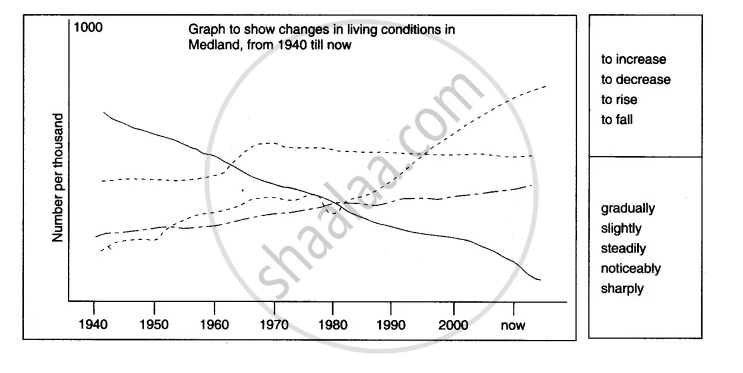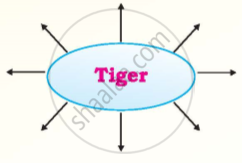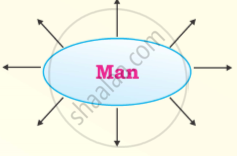Advertisements
Advertisements
Question
Answer the following question briefly.
Which road would you choose? Why?
Solution
I would choose the second road. I am a young man with great ability to face challenges and adventures that come in life. The untrodden road would give me opportunities to come across several new adventures which I like the most.
APPEARS IN
RELATED QUESTIONS
Now that you have enjoyed reading the story, answer the following question by choosing the correct option
The granddaughter found her grandmother in tears on her return as _____
Given below are five qualities that Charles Hooper displayed during his struggle for survival.

Get into groups of four. Each team will choose one quality to talk about to the whole class for about one minute. But before you talk you have two minutes to think about it. You can make notes if you wish.
Answer the following question briefly.
Which road does the speaker choose? Why?
In the sixth line of the first stanza, we read:
"... and sings a melancholy strain,..."
This "s" sound at the beginning of sings and strain has been repeated. Poets often do
this. Do you know why? Do you know what this "poetic repetition" is called? Can you
find other instances of this, in The Solitary Reaper?
Now write three situations similar to (a) in the box. Exchange the information with your partner and guess the answer to each other's situations as in (b).
Question 1.
My dog is barking angrily and is trying to get loose.
Question 2.
The car is making a curious noise.
Question 3.
Satish enters breathing heavily.
Satish enters breathing heavily.
(4)

Now read this extract from a story and draw arrows (as in the example above) to show how the personal pronouns refer to the different people and things.
Leena was on her annual visit to her uncle's house. She always enjoyed it because she was allowed to spend most of the day down at the mango grove. Leena's uncle was a friend of the man who owned the grove and he always gave a special rate. This year Leena's aunt joined her, and together they set off across the fields to the grove. The branches of the trees were covered with fruits, and so bowed down with the weight that they almost touched the ground. They spent hours picking fruit, eating most of it and sleeping in the shade.
In pairs discuss the qualities and characteristics of the tiger and man. Complete the web charts. 

What would you do if you became invisible? Would you use your invisibility to play tricks on people or for the good of people?
Write a short paragraph on 'If I was invisible'.
Look at the notes below. Then use the information to complete the paragraph by choosing a suitable word or phrase in each space.
Bishnois – always – nature worshippers – 1730 A.D. – Maharja Abhay Singh’s men – fell – khejri trees – Amrita Devi – hug a tree – protested – insisted – to cut her head first – men obliged – Amrita – a legend.
Bishnois have (a) ____________. In 1730 A.D. Maharaja Abhay Singh’s (b) ____________ fell Khajri trees. Amrita Devi, a true Bishnoi, (c) ____________ and expressed (d) ____________. She insisted that if they wanted to cut the tree (e) ____________. The unrelenting men of the Maharaja obliged her and the (f) ____________.
| (a) (i) always been regarded as nature worshippers (ii) always been called as nature worshippers (iii) always knew nature worshippers (iv) always done nature worshippers |
(b) (i) men coming to (ii) men started (iii) men began to (iv) men came to |
(c) (i) hug a tree (ii) hugging a tree (iii) hugged a tree (iv) hugs a tree |
| (d) (i) his protest (ii) her protest (iii) their protest (iv) protesting |
(e) (i) they may cut her head first (ii) they would have to cut her head first (iii) they can cut her head first (iv) they should cut her head first |
(f) (i) woman became a legend (ii) woman becomes a legend (iii) women became a legend (iv) woman read a legend |
Think of a person in your class, and use adjective + prepositions to describe him/her in about two or three sentences. Don't give a name.
(a) e.g. She’s good at Maths.
She’s keen on hiking.
Show your description to your partner. Let her or him guess who it is.
(b) The following diagram explains the use of some of these prepositions.
| Destination | Position | Destination | Position | Reference |
| to •X | at •X | away from x ⇒ |
away from x • |
Referring to a |
| on (to) | on | off | off | Referring to a line or surface. |
| into | in | out of | out of | Referring to an enclosed area |
Notice the following peculiarities in the use of Prepositions.
1) at relates to a small extent of space or time while in relates to a wider extent.
2) with relates to the instrument used for doing something.
by relates to the doer
e.g. (1) This poem was composed~me
(2) I wrote with a Shaffer's pen.
3) between, among: between is used when there are two things or persons or
ideas, among is used for more than two.
e.g. ( 1) The property was divided between the twins.
(2) The gossip spread among the villagers.
4) beside, besides : beside means by the side of, besides means in addition to
e.g. (1) Ram sat beside his grandmother.
(2) Besides music, he is interested in painting.
5) in and within : in denotes at the close of some future period, within denotes
sometime short of the close
e.g. (1) The project will be implemented in a week's time.(= at the close)
(2) The plan will be sanctioned within a fort night(= less than)
